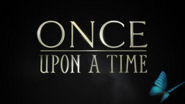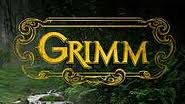
For the review part of this article, I'll make it quick.
 Once Upon a Time (ABC): Soap opera fun wrapped in fantasy. Think Dark Shadows. Not as good or memorable as that show, but possibilities are there. Worth taking a look.
Once Upon a Time (ABC): Soap opera fun wrapped in fantasy. Think Dark Shadows. Not as good or memorable as that show, but possibilities are there. Worth taking a look.
Grimm (NBC): When you have to make a potentially smart character dumb, then saddle them with a secondary character who has to feed him (and us) the lore of the show, you're starting off on the wrong foot. Throw in some 'look at the camera so I can show you the creepy facial effects no one but the main character can see' and have the whole premise of that effect based on a better film (They Live) and you have the makings of a dull show.
so I can show you the creepy facial effects no one but the main character can see' and have the whole premise of that effect based on a better film (They Live) and you have the makings of a dull show.
Neither show is a glowing winner in my eyes. At best, Once Upon a Time has a cautionary wait and see, but in the sale of both of these shows to the general public, and to the geek audience in particular, there as been something of a lie told to grab our attention. Once Upon a Time says it's from the makers of LOST while Grimm counts Buffy the Vampire Slayer as lineage. While the creators of both shows have been connected to the bigger projects, the implication of the sale is you are getting people who were front and center of those shows when in actuality they could have been producers or writers twice removed.
Here is where I have a disconnect with fantasy shows, and by fantasy I am including science fiction and superhero shows into the mix. Since the year 2000 these producers have schlepped down to Comic Con International to woo fans. They have seen the tables, looked at the costumes and talked to the audiences. They have traveled to other conventions to promote their shows so they have been given a cross reference of geekdom in the country. It can also be presumed that the creators have met or have been exposed to other creators in other fantasy mediums, be it books, comics and the like. With all that exposer, why do Comic Con style projects like Once Upon a Time or Grimm tend to be so bad?
I'm going to go into the way back machine and pull up the information of Good Times. Remember Good Times? Remember how this show about a poor black family living in the ghetto, while a comedy, had some real socially concision issues early on? By season three, when the show was established as a hit, there was so much tension backstage that John Amos was killed off at the beginning of that third season and the show 'jumped the shark.' Good Times suffered because it became a comedy like all other comedies out there. What made it stood out in earlier episodes was the look inside a family situation that was unfamiliar and familiar at the same time. The plight that many black families faced, be it poverty or racism, was addressed with frankness in the early shows. This was lacking in the later ones.
So, what does that have to do with fantasy shows? The decline in Good Times started when black writers who were on the show, who were writing about black family life, were pushed aside for the comedy element. What got people interested in the show slowly was shoved out for more traditional (at the time) comedy show tropes. Without the fresh black perspective the show was just another comedy show. The new crop of fantasy and science fiction shows are just the same old TV staples with fantasy elements plugged in. They aren't mixed into the show, but placed on top haphazardly. In the case of Grimm, if you took away the fantasy element you have a procedural detective show. When you have that you are left to look at things like characters development or storyline. Well, the nature of a procedural format is to tell more about the procedure than the characters. It can take years to find out information on characters in those types of shows because we rarely see long glimpses into their home life. The case is the key. Unfortunately, while a regular police procedural will have something, a ripped from the headline storyline or something, to connect with the audience. All we have to look for in Grimm is to see what evil character will show up. This is jokingly called the Monster of the Week format, because there is some new monster, in this case literally, that is brought in each week. The format is weak in most cases because the story is a prop ultimately. You can't care about the victim because they have to be saved. You don't fear the monster because it will get killed in the end, and the next week the same formula will be plugged in with people who have just seen mysterious things forgetting that and will continue to be amazed at the weirdness going all around them.
With Once Upon a Time, it has the benefit of using the soap opera model, which makes sense since we are talking about fairy tale characters. It allows characters to be developed and on the surface it seems this would be a good fit for the show. Where I have troubles with it is the over reliance of hitting you over the head everyone is a fairy tale character. This means a character is introduced, then you have to wonder what character it is, and to really kick a person when they are down, the do flashbacks to the fairy tale land to show their story before the curse hit. Coincidentally, their plight in our world mirrors their situation in the fairy tale world. It's kind of a twist on the Monster of the Week format, but it's still introduce a fairy tale character, presents their problem then solved it by the end of the hour. That's a bit strange since the soap opera format allows for longer story possibilities, but in the economic realities of network TV, having something that will work well in reruns is key.
That is the saddest part in all of this; what will probably cause both shows to fail. People, especially fantasy fans, like to have a story that grows on them from a number of levels. It's often called the mythology of the show. Fans of LOST liked the show because as you watched the show you got caught up in the mystery of the show. That was it's mythology. The reality is the shows have to make money, and in most cases TV shows make money in being packaged for syndication or DVD sales and the like. A show that is tough to follow, like LOST, can be a tough sale in syndication. LOST, for a time, was in syndication on a local station, but from what I could tell, it wasn't shown in order, which is confusing to say the least. It's a shame the bottom line has to be thought about in the creative process, but it's not the creators that hold the purse strings in these ventures. Shows like Grimm and Once Upon a Time try to link on the lineage of other shows the creators have been attached to, but most of the time you get someone who isn't the head creator of the show. They try to make something that dips into the old magic, but the whole television model has changed. They try to re-create the hit they were on, but they end up using shortcuts and handing out old formulas in new packaging. They go to a place like Comic Con, selling the worn but slightly polished baubles as something new. In the end, the general audience can't get emotionally involved with the premise and the fantasy fan, as starved as they are for a good fantasy show, ultimately walks away once the luster has faded.
Copyright © Chaotic Fringe LLC. All rights reserved.